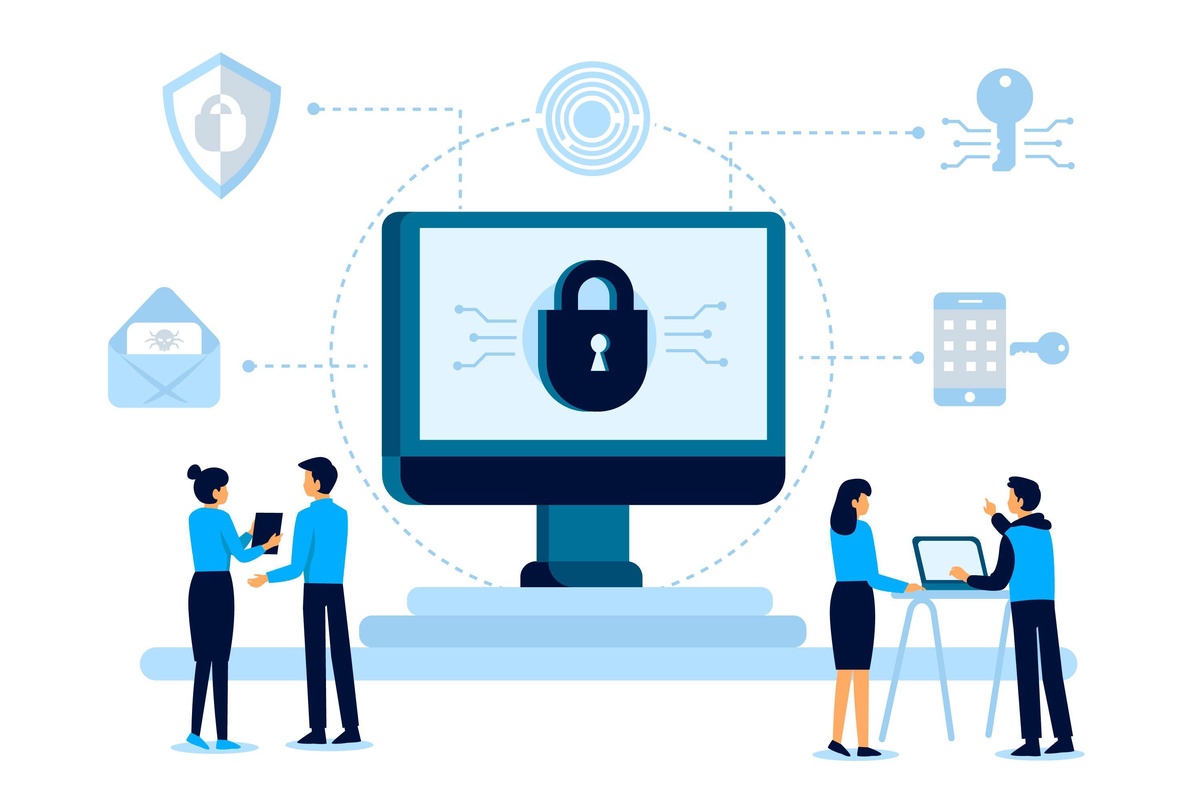In an increasingly interconnected and digitized world, supply chains are the lifeblood of modern business. They extend across borders, involve numerous stakeholders, and are essential for delivering products and services to customers worldwide. However, this interconnectedness also exposes supply chains to a growing array of cyber threats. As these threats mount, it is crucial for organizations to prioritize and integrate cybersecurity measures into their supply chain operations.
The Expanding Cyber Threat Landscape
The digitalization of supply chains has brought about incredible efficiency and responsiveness, but it has also created vulnerabilities. Cyberattacks targeting supply chains have become more sophisticated and frequent. Attackers can exploit weaknesses in any part of the supply chain, from suppliers and manufacturers to distributors and customers, making it a complex challenge to tackle.
To address these growing threats, organizations are recognizing the importance of enhancing their cybersecurity measures. One effective way to strengthen the overall security posture is by investing in comprehensive cyber security training. Such a course equips employees at all levels with the necessary skills to identify and mitigate cyber risks, fostering a culture of awareness and resilience within the organization.
Common supply chain cybersecurity threats include:
- Phishing Attacks: Cybercriminals often use deceptive emails or messages to trick employees into revealing sensitive information or installing malware.
- Ransomware: malicious software that encrypts critical data until a ransom is paid, crippling operations.
- Third-Party Vulnerabilities: Weaknesses in suppliers' and partners' systems can expose the entire supply chain to risk.
- Data Breaches: Theft of sensitive customer or business data can lead to significant financial and reputational damage.
- Insider Threats: Employees or contractors with access to supply chain systems may misuse their privileges.
- Supply Chain Interference: Disruption of the flow of goods through cyberattacks on logistics and transportation systems
The Imperative of Cybersecurity in the Supply Chain
As threats mount, it's no longer enough for companies to focus solely on their internal cybersecurity. The entire supply chain must be considered a collective defense against cyber threats. This is why integrating robust cybersecurity measures into every aspect of the supply chain is imperative. Implementing a comprehensive cyber security course for employees involved in the supply chain can significantly enhance awareness and preparedness, fortifying the overall resilience of the interconnected network against potential cyber threats.
- Continuous Monitoring: By integrating cybersecurity into the supply chain, organizations can implement continuous monitoring and threat detection systems. This proactive approach helps identify and address vulnerabilities in real time, reducing the impact of potential attacks.
- Supplier Assessment: Organizations can establish stringent cybersecurity standards for their suppliers, including requirements for regular security audits and compliance checks. This ensures that the weakest link in the chain is strengthened through robust cyber security training initiatives.
- Information Sharing: Open communication channels within the supply chain allow for quick sharing of threat intelligence and best practices, enhancing the collective defense.
- Resilience and Business Continuity: Cybersecurity measures enable the supply chain to maintain operations in the face of cyberattacks, reducing downtime and minimizing financial losses.
- Supplier Assessment: Organizations can establish stringent cybersecurity standards for their suppliers, including requirements for regular security audits and compliance checks. This ensures that the weakest link in the chain is strengthened through robust cyber security training institute in chennai initiatives.
- Customer Trust: Demonstrating a commitment to cybersecurity in the supply chain enhances customer trust. Consumers are increasingly concerned about the safety of their personal data and the reliability of the products and services they purchase.
Steps to Strengthen Supply Chain Cybersecurity
Building cybersecurity into the supply chain requires a multi-pronged approach. Here are some essential steps to get started:
- Risk Assessment: Identify potential cybersecurity risks and vulnerabilities within your supply chain. This assessment should encompass all aspects of your operations, from suppliers to logistics.
- Supplier Selection and Management: Choose suppliers and partners with strong cybersecurity practices, ensuring the utmost protection for your business operations. Consider collaborating with a reputable cyber security training institute in bangalore to enhance the cybersecurity knowledge of your suppliers.
- Cybersecurity Training: Educate employees and supply chain partners about the importance of cybersecurity and provide training to recognize and respond to threats.
- Incident Response Plan: Develop a comprehensive incident response plan that outlines steps to take in the event of a cyberattack. This plan should include communication strategies, recovery procedures, legal compliance measures, and ensure that key personnel hold relevant cyber security certifications to enhance the overall preparedness and effectiveness of the response.
- Regular Testing and Evaluation: Periodically test and evaluate the cybersecurity measures in place to ensure they remain effective against evolving threats.
- Collaboration and Information Sharing: Foster open communication and collaboration within the supply chain, encouraging the sharing of threat intelligence and best practices.
- Compliance with Regulations: Stay up-to-date with industry-specific regulations and ensure compliance to avoid legal and financial consequences.
End Note
As the digital landscape continues to evolve, organizations must adapt to the growing threat of cyberattacks on their supply chains. Building cybersecurity into the supply chain is not just an option; it's a necessity to protect business continuity, reputation, and customer trust. To achieve this, investing in the best cyber security training for employees and stakeholders becomes crucial. By taking proactive measures, conducting risk assessments, and fostering collaboration within the supply chain, companies can defend against the mounting cyber threats and maintain the integrity of their operations. In today's interconnected world, cybersecurity in the supply chain is no longer a luxury but a vital component of doing business securely and responsibly.


No comments yet